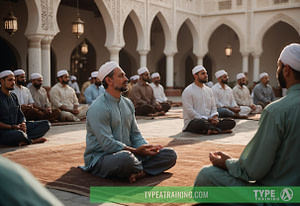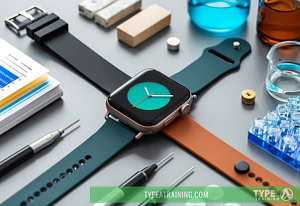Finding a reputable personal trainer in New York City can make a significant difference in achieving your fitness goals. With a city brimming with options, making the right choice might seem daunting.
Look for trainers who are nationally certified, insured, and have extensive experience tailored to your needs.
It’s crucial to consider personal trainers who match your fitness goals and training preferences.
Popular Posts
Whether you prefer in-home sessions, private gyms, or virtual training, New York offers a variety of trainers specializing in different areas.
Some trainers focus on weight loss, while others may emphasize strength training, flexibility, or overall wellness.
When searching for a personal trainer in NYC, check their credentials and success stories.
Websites like Leading Edge and Manhattan Personal Training provide a range of highly qualified trainers, ensuring you find a match that will offer personalized support and accountability.
Key Takeaways
- Choose a certified and insured trainer with relevant experience.
- Match your goals with a trainer’s specialized skills.
- Check credentials and success stories for assurance.
Understanding Personal Training in New York City
Finding a reputable personal trainer in New York City can help you achieve your fitness goals. It’s important to know the landscape of trainers available, what qualities to look for in a trainer, and the necessary certifications they should have.
The Personal Trainer Landscape in NYC
New York City offers a wide range of personal trainers. From private trainers working independently to those associated with top gyms and studios, you have many options. Some trainers focus on weight loss, while others specialize in strength training or athletic performance.
Popular names like Kat Ellis and Alex Folacci are well-known in the field. NYC trainers often have extensive experience and a strong educational background in fitness and nutrition.
Qualities of Top Personal Trainers
Top personal trainers in NYC possess certain qualities that set them apart.
Experience is a major factor; trainers with several years in the industry often have a deeper understanding of client needs and effective workout strategies.
They should also be approachable and supportive. A good trainer should motivate you, listen to your concerns, and adjust your fitness plan as needed. Look for testimonials from past clients to gauge their success.
Specializations also matter.
Trainers like Zach may offer unique programs tailored to specific goals, such as injury rehab or sports training. This specialization helps ensure that the trainer can meet your specific needs.
Certifications and Expertise
Certifications are a key indicator of a trainer’s credibility.
Widely recognized certifications include those from NASM (National Academy of Sports Medicine),
Look for trainers who continue their education and stay updated with the latest fitness trends.
For instance, trainers like Alex Cedeno have not only a NASM certification but also a Bachelor of Science degree, further showcasing their commitment to expertise.
Make sure any personal trainer you consider has relevant and up-to-date certifications to ensure you’re getting the best guidance for your fitness journey.
Setting Fitness Goals
Finding a reputable personal trainer in New York City can be challenging. You need to know where to start and how to evaluate online profiles and reviews effectively.
Where to Start Your Search
Begin by checking out local gyms and fitness studios. Many reputable trainers work at well-known gyms. Big chain gyms often have a team of certified trainers. In addition, smaller, specialized studios may have trainers with unique skills.
Another good way is through referrals. Ask friends or family if they have recommendations. Personal experiences from people you know and trust can lead you to a great trainer.
Professional organizations and certification bodies often have trainer directories. Look for trainers certified by NASM,
Consider Yelp or other review sites to see top-rated trainers. These platforms often have lists of trainers who are highly rated by their clients.
Evaluating Online Profiles and Reviews
When you find potential trainers, look at their online profiles.
Check their qualifications, experience, and areas of expertise. Certifications from respected organizations like NASM speak to a trainer’s knowledge.
Read reviews carefully. Pay attention to what clients say about their training style, professionalism, and results. Look for patterns in feedback—consistent positive or negative comments can tell you a lot.
Visit the trainer’s website if they have one.
Look for client testimonials, transformation photos, and details about their training philosophy. A well-maintained site can indicate a professional and serious approach.
If possible, schedule a consultation. This allows you to ask questions and see if you feel comfortable with the trainer. It also lets the trainer assess your needs and fitness goals.
Specializations and Training Styles
Choosing the right personal trainer in NYC involves understanding their specializations and training styles. Knowing what areas they focus on and their training methods can help you make the best match for your fitness goals.
Diverse Fitness Disciplines in NYC
In NYC, trainers offer expertise in a variety of fitness disciplines.
Yoga instructors can help improve your flexibility and reduce stress.
Strength training specialists focus on building muscle and increasing overall body strength.
Pilates trainers emphasize core stability and postural alignment.
For high-energy workouts, you might consider a trainer who specializes in high-intensity interval training (HIIT), which can improve cardiovascular health and burn fat quickly.
Bodybuilding trainers can guide those looking to gain muscle mass and define their physique.
CrossFit coaches offer challenging routines that combine multiple fitness elements for overall conditioning.
Matching Your Goals to Their Specialties
It’s crucial to align your fitness goals with the trainer’s specialization.
If you aim to relax and enhance flexibility, a yoga instructor would be suitable. Those wanting to increase strength should find a strength training expert.
If your focus includes improving core strength and flexibility, Pilates would be ideal.
People looking for intensive workouts to lose weight or increase stamina might prefer HIIT specialists.
Anyone interested in muscle growth and competition might seek out a bodybuilding trainer.
For varied and high-intensity functional movements, a CrossFit coach can offer a comprehensive approach to fitness.
Nutrition and Lifestyle Coaching
Nutrition and lifestyle coaching are key elements in any personal training program. They help you not only get in shape but also maintain a healthy lifestyle in the long run.
The Role of Nutrition in Personal Training
Nutrition plays a crucial role in your fitness journey. A proper diet ensures that your body gets the necessary nutrients to repair and build muscle, boost energy levels, and support overall well-being.
Working with a certified nutritionist or dietitian can give you a personalized eating plan.
Consulting a nutritionist can help tailor your diet to your specific fitness goals. Whether you aim to lose weight, gain muscle, or enhance endurance, specific nutritional strategies can be employed.
Regular follow-ups with your nutrition coach ensure you stay on track and make adjustments as needed.
Integrating Lifestyle Changes
Incorporating lifestyle changes is essential for sustainable health improvements. This involves adopting habits such as regular exercise, proper sleep, and stress management.
Personal trainers who offer lifestyle coaching can guide you in building routines that support your long-term goals.
Lifestyle changes aren’t just about diet and exercise. They include aspects like hydration, mindful eating, and flexibility in your routines.
By addressing these elements, you can achieve a more balanced and healthy life. Remember, consistency is key, and small changes can lead to significant results over time.
Virtual Versus In-Person Training
Understanding the differences between virtual and in-person training can help you decide which option fits your needs best. Each has its own unique benefits and considerations, whether you prefer the convenience of home or the structure of a gym environment.
Benefits of Virtual Personal Training
Virtual personal training offers flexibility and convenience. You can work out from home, cutting out travel time to the gym.
Sessions can often be scheduled around your day, making it easier to fit workouts into a busy lifestyle.
Cost is another advantage. Online sessions usually cost less than in-person sessions in a gym or private gym. This can save you a significant amount of money over time.
For example, virtual personal trainers may charge between $25-$50 an hour, whereas in-person trainers can cost more than $60 an hour.
Access to a wider range of trainers is a major plus. You aren’t limited to trainers in your immediate area.
This means you can find a coach who specializes in the type of fitness or training you are interested in, such as strength training, yoga, or high-intensity interval training.
Choosing Between Gym and At-Home Sessions
In-person training in a gym provides real-time feedback and hands-on adjustments, which can be crucial for learning proper form and technique. Trainers can spot and correct you immediately, reducing the risk of injury.
Gyms often have a variety of equipment that in-home personal training sessions may lack. This access can enhance the variety and effectiveness of your workouts.
In-home sessions offer privacy and comfort. You can exercise in a familiar environment without feeling self-conscious.
This can be especially appealing if you’re new to working out or prefer a personal space to exercise. Online personal training can bridge this gap by providing equipment recommendations that suit your home setup.
When deciding between the two, consider what motivates you more—access to a full gym and direct trainer interaction, or the convenience and flexibility of working out at home.
Examining Trainer Credentials and Success Stories
Finding a reputable personal trainer in NYC involves careful review of their credentials and client success stories. You’ll want to check their professional certifications and see real-life transformations from past clients.
Verifying Certifications and Testimonials
Check if the trainer has reputable certifications. Important certifications include those from the National Strength and Conditioning Association and the American Council on Exercise.
These organizations ensure the trainer has met specific standards of knowledge and expertise.
Testimonials can provide insight into what previous clients think. Look for detailed reviews that mention specific improvements and the trainer’s approach to fitness.
Honest testimonials can help you gauge the trainer’s effectiveness and professionalism.
Client Transformations and Case Studies
Look for visual evidence of client progress. Before-and-after photos can be powerful, but make sure they are authentic.
Videos or written case studies can also be insightful. These should detail the client’s initial state, the training process, and the end results.
Case studies often highlight the trainer’s ability to help clients achieve their goals, whether it’s weight loss, muscle gain, or improved athletic performance.
Reviewing these can give you a clear picture of what you might achieve.
Financial Considerations
Finding a reputable personal trainer in NYC involves understanding the costs and payment models available. Prices can vary widely depending on the type of trainer and training setting.
Personal Trainer Costs in NYC
Personal trainer rates in New York City can vary significantly. In private gyms, sessions often range from $80 to $125 per hour.
Trainers with more experience or specialized skills, such as Maik Wiedenbach, can charge even higher rates, sometimes over $200 per hour. Group training sessions can be more affordable, often costing around $40 to $60 per person.
Prices are influenced by the trainer’s experience, certifications, and reputation. It’s important to consider what you are willing to invest in your fitness goals when selecting a trainer.
Understanding Payment Models and Packages
Many personal trainers offer different payment models and packages. Some charge per session, while others provide packages of multiple sessions at a discounted rate.
For example, you might find a package of 10 sessions for $1,000 compared to paying $120 per session individually.
Subscription models are also common. This could involve a monthly fee that includes a certain number of sessions.
It’s essential to understand what each package includes, such as additional benefits like nutrition coaching or online support.
Private vs. Commercial Gym Cost
The cost of hiring a personal trainer can differ greatly between private and commercial gyms. Trainers at commercial gyms often have set rates, and these gyms may offer membership discounts.
On the other hand, private gym trainers, like those mentioned on Fitness NYC, might charge more due to less volume and more personalized attention.
Each setting has its advantages. Commercial gyms might offer more equipment and amenities, while private gyms might provide a more personalized experience.
In-Home Training Costs
In-home personal training is another option and may appeal to those with busy schedules who prefer the convenience.
Rates for in-home training are typically higher due to the added travel time for the trainer. You can expect to pay around $100 to $200 per session, depending on the trainer’s qualifications and the distance they have to travel.
Additionally, some trainers bring their own equipment, which can add to the cost. It’s crucial to clarify these details before committing to in-home training sessions.
Physical Assessment and Safety Measures
When finding a personal trainer, it is crucial to ensure they conduct proper physical assessments and prioritize your safety. This involves understanding your fitness level, creating tailored goals, and taking necessary measures to prevent injuries during workouts. Here are the key points to consider.
Initial Assessment and Goal Setting
Before beginning any training, a reputable trainer will perform an initial assessment. This helps them understand your current fitness level and health history.
They may use various methods, including:
- Body measurements: Tracking weight, body fat percentage, and muscle mass.
- Fitness tests: Evaluating strength, endurance, flexibility, and cardiovascular health.
- Questionnaires: Gathering information on medical conditions, exercise history, and lifestyle.
This assessment provides insights into potential risks and helps in creating realistic goals.
For example, if you have a metabolic condition, discussing this during the assessment ensures that the trainer tailors workouts to your needs. Establishing clear, specific goals helps in tracking progress and staying motivated.
Maintaining Safety During Workouts
Safety should always be a priority in any fitness regimen. A good trainer will ensure you perform exercises with proper form to avoid injuries.
They will demonstrate techniques and correct your posture during workouts. This includes:
- Warm-ups and cool-downs: Essential for preparing your body for exercise and preventing muscle strains.
- Progressive overload: Gradually increasing the intensity of workouts to build strength without overloading your body.
- Spotting: Assisting with heavy lifts to prevent accidents.
Regular check-ins and reassessments are important to adjust your program as your fitness level improves.
By focusing on safety, you can work out effectively and minimize the risk of injury. Maintain open communication with your trainer to address any pain or discomfort immediately.
Ongoing Support and Accountability
Consistent support from your personal trainer is essential for meeting your fitness goals and staying motivated. This support includes building a strong relationship with your trainer and regularly tracking your progress to make necessary adjustments.
Building a Relationship with Your Trainer
A good relationship with your personal trainer is crucial. This relationship is built on trust and clear communication.
When you feel comfortable with your trainer, you’re more likely to stay committed to your fitness journey.
Make sure your trainer understands your goals and can tailor the workouts to meet your needs. Talk to them about any concerns or challenges you face.
Open and honest communication helps your trainer provide the right kind of support and motivation.
Having a trainer who listens and responds to your needs also helps in creating a positive workout environment.
Building a good relationship with your trainer can lead to more effective sessions and better overall results.
For instance, a trainer like Alex Cedeno offers personalized guidance based on your fitness level and goals.
Tracking Progress and Making Adjustments
Regular progress tracking is key to maintaining accountability. A good trainer will keep detailed records of your workouts and improvements.
They may use metrics like weight, strength gains, or endurance levels to track your progress.
Frequent assessments allow you to see where you’re excelling and where you might need more focus.
These check-ins can be weekly or monthly, depending on your plan.
The Nerd Fitness guide emphasizes the importance of these assessments and adjustments.
When progress stalls, your trainer should help you adjust your routines or introduce new exercises. This ensures continuous improvement and helps keep your workouts interesting.
Keeping track of your progress not only measures success but also keeps you motivated to continue your fitness journey.
Frequently Asked Questions
When looking for a personal trainer in New York City, there are several specific factors you should consider. Additionally, you can find valuable reviews and understand the fee structures, certifications, and specialized services available.
What should I look for when choosing a personal trainer in New York City?
Check if the trainer listens to your goals and creates a personalized plan.
Avoid trainers who push memberships or supplements right away. Look for trainers who are attentive and not distracted during your sessions.
Where can I find reviews for personal trainers in NYC?
Websites like Yelp offer reviews and ratings for personal trainers in NYC.
You can read experiences and recommendations from other clients to help make your decision.
How are personal training fees structured in NYC?
Personal training fees in NYC vary widely. Some trainers charge hourly rates, while others offer monthly packages.
It’s essential to understand what’s included in the fee, such as assessment sessions or nutrition advice.
Can I find specialized personal trainers for women in NYC?
Yes, NYC has numerous personal trainers who specialize in training women.
These trainers may focus on areas like pre- and post-natal fitness, female athlete training, or fitness for specific health conditions.
What certifications should a reputable personal trainer in NYC have?
A reputable trainer should have certifications from recognized organizations such as NASM,
Confirm that their certifications are current and valid to ensure you get professional and safe guidance.
What options are available for in-home personal training services in NYC?
In-home personal training services are available for those who prefer to train at home. Many trainers in NYC offer this convenience.
They bring equipment and personalize the workout to fit your space and needs.

















